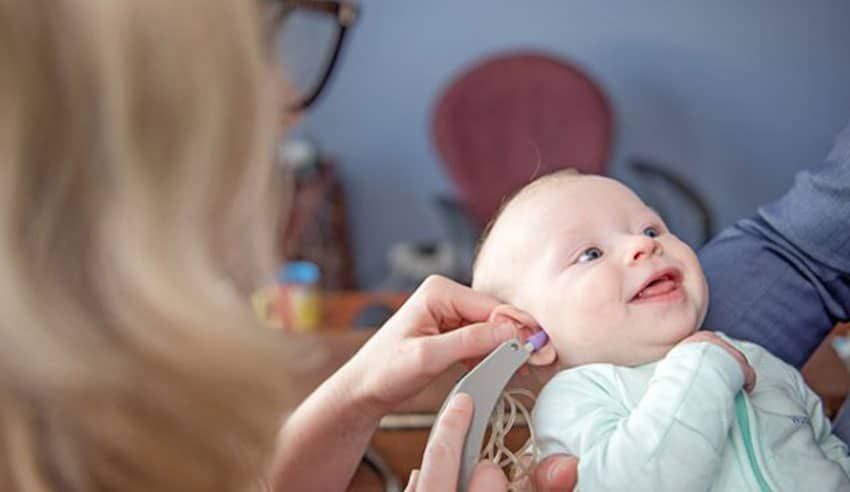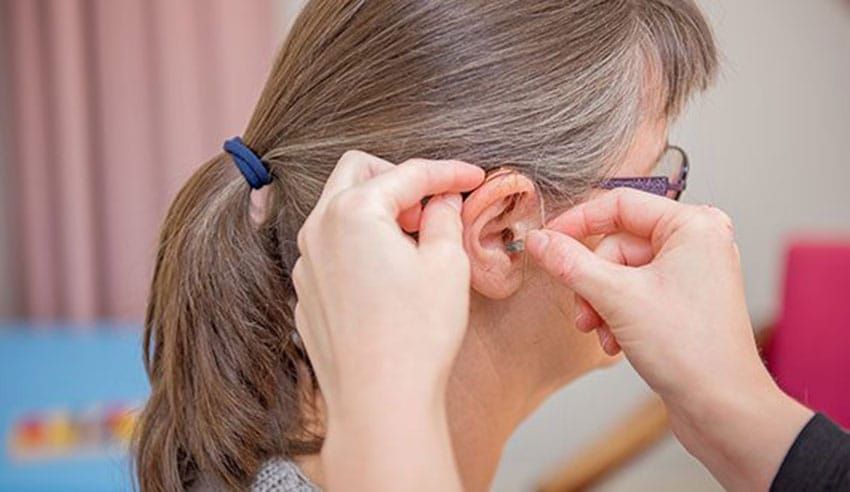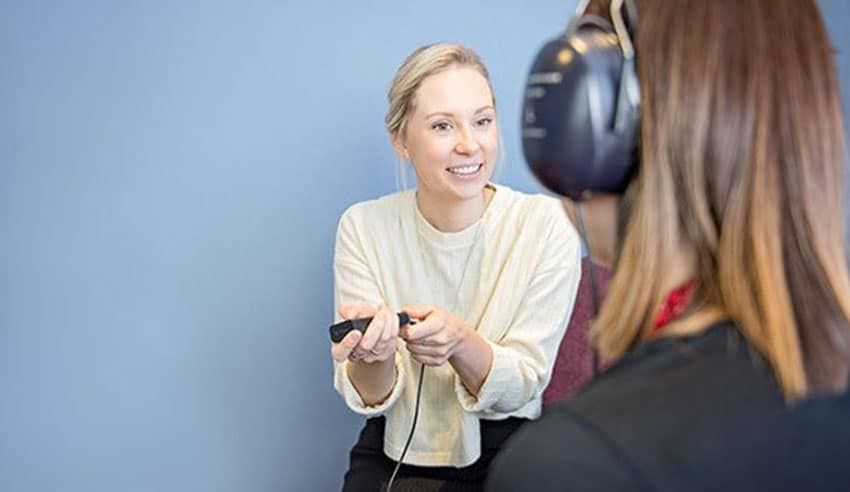Hearing Assessment
Hearing test for all ages in our professional sound treated clinics

Child Assessments
-
Detailed history of hearing and ear health
-
Pure-tone audiometry
-
Middle-ear function test
-
Speech audiometry (depending on age and development)
-
Detailed discussion of results
-
Recommendation of appropriate follow-up and/or management (if required)
-
Written report to referrer, parents and any other 3rd party requested, eg; school
-
A medical referral is not required

Adult Assessments
-
Detailed history of hearing and ear health
-
Pure-tone audiometry
-
Middle-ear function test
-
Speech audiometry (in quiet and in noise if necessary)
-
Detailed discussion of results tailored to your history and individual circumstance
-
Recommendation of appropriate follow-up and/or management (if required)
-
Written report back to your referrer, yourself and any other 3rd party requested
-
A medical referral is not required

Specialty Hearing Tests
We perform hearings tests and provide appropriate reporting to all Australian standards and certifications across the following industries and activities:
-
Diving
-
Aviation
-
Driving
-
Police & Protective Services
-
Industrial hearing screening
-
Pre-employment hearing screening
FAQ
A hearing assessment, also known as an audiometric evaluation, is a comprehensive examination that assesses an individual’s ability to hear and understand sounds. It involves various tests, such as pure-tone audiometry, speech audiometry, and middle ear analysis, and can help identify the type and severity of hearing loss, determine appropriate treatment options, and monitor changes in hearing over time.
A hearing test checks for various aspects of an individual’s hearing abilities. It assesses the sensitivity of their hearing across different frequencies, measures their ability to understand speech at different volumes, evaluates their middle ear function, and detects any potential hearing abnormalities or conditions such as hearing loss, tinnitus, or ear-related disorders. The test results help audiologists diagnose the type and degree of hearing impairment, determine appropriate treatment options, and provide recommendations for hearing aids or other assistive devices if necessary.
Determining whether you need a hearing test or not depends on your personal experiences and any concerns you may have regarding your hearing. It is generally recommended to consider a hearing test if you are experiencing symptoms such as difficulty understanding speech, frequently asking others to repeat themselves, turning up the volume on electronic devices excessively, perceiving muffled or distorted sounds, or if you have been exposed to prolonged loud noises. Additionally, if you have a family history of hearing loss or are in an age group where hearing loss is more common (such as over the age of 60), a hearing test can provide valuable insights into your hearing health. Consulting with a healthcare professional or an audiologist can help determine if a hearing test is appropriate for your specific situation.
There are several types of hearing tests available to assess different aspects of hearing. Pure-tone audiometry is a common test where you listen to tones at different frequencies and indicate when you can hear them. Speech audiometry measures your ability to understand and repeat words or sentences at various volumes. Tympanometry assesses the movement of the eardrum and middle ear function. Additional tests may include otoacoustic emissions (OAEs), which evaluate the inner ear’s response to sound, and auditory brainstem response (ABR), which measures the brain’s response to sound stimuli. These tests help audiologists diagnose hearing loss, determine its type and severity, and guide appropriate treatment options.
The specific tests used may vary based on the individual’s age, symptoms, and suspected hearing issues. A qualified audiologist or healthcare professional will determine the most appropriate tests to assess your hearing accurately.
Visit an audiologist: If your primary care physician recommends a hearing test, they may refer you to an audiologist. Alternatively, you can directly search for an audiologist or hearing clinic in your area and schedule an appointment with no referral necessary.
Determining whether you may need a hearing test depends on your individual circumstances. If you are experiencing any signs of hearing loss, such as difficulty understanding conversations, frequently asking others to repeat themselves, or turning up the volume on electronic devices excessively, it is advisable to consider a hearing test. Other factors that may indicate the need for a hearing test include a family history of hearing loss, prolonged exposure to loud noises, or being in an age group where hearing loss is more common (such as over the age of 60). Consulting with a healthcare professional or an audiologist can help assess your specific situation and determine if a hearing test is warranted.
Objective hearing tests are diagnostic evaluations that measure specific physiological responses of the auditory system, independent of the individual’s subjective input. These tests do not require the patient to actively participate or respond. Examples of objective hearing tests include otoacoustic emissions (OAEs), which measure the sound waves generated by the inner ear in response to a stimulus, and auditory brainstem response (ABR), which assesses the electrical activity of the auditory nerve and brainstem in response to sound. These tests provide valuable information about the functioning of the auditory system and can help identify hearing disorders or issues.
Book Your Hearing Consultation Today
"*" indicates required fields